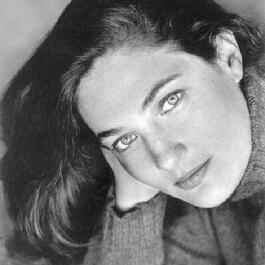
story
(Washington, DC - Todd Zwillich, Transportation Nation) Lawmakers are hoping for a chance to give the electric car a jolt in the Senate’s upcoming energy bill. A bipartisan group of senators are pushing a new round of incentives and cash designed to speed development of long-range batteries and plug-in stations that could finally start to push the US transportation fleet away from fossil fuels. No one expects it to happen quickly. Most lawmakers and experts expect it will take decades before a significant proportion of Americans are driving plug-in hybrids or electric cars. The Promoting Electric Vehicles Act of 2010 throws $1.5 billion in research and development grants to high-tech battery firms. They’re chasing high-capacity batteries that can propel a car at least 300 miles on a single charge. That’s in addition to $2.4 billion already earmarked for battery R+D in the Recovery Act stimulus plan. The bill also calls for setting up up to 15 “deployment communities”, where everything from public plug-in stations, incentive programs, and incentives for utilities to play ball with electric car infrastructure will be showcased. Other versions of the bill contain tax credits and rebates designed to spur the development of electric cars and the desire to buy them. “National security, our economic security is threatened by being as vulnerable as we are to something over which we have very little control,” bill sponsor Sen. Byron Dorgan (D-SD) said of American dependence on foreign countries for oil and gasoline. Dorgan pointed out in Senate hearings today that Congress put up with a pageant of incentives for oil exploration at the beginning of the 20th Century, once it became clear that mass-produced car engines would burn gas. Now he’d like to see similar vision for electric cars and plug-in hybrids. Dorgan has been working closely on the bill with Republicans, including Sen. Lamar Alexander (R-Tenn.), a member of the GOP leadership. Still other Republicans have worries with the inventive plan. Sen. Lisa Murkowski (R-Alaska) said the bill goes too far in picking “winners and losers” in the technology sector, suggesting it invests too heavily in the hope of plug-in hybrids and electric cars. “I am as hopeful as anyone that electric vehicles are here to stay,” Murkowski said. “The question is, are we finally right?” Congress also appears headed for a debate over whether to go with the dozen or so “deployment communities” for stoking electric infrastructure innovation, or whether to spread the money farther and wider to more cities. Several new electric hybrids and electric cars, including the Chevy Volt and the Nissan Leaf are expected on the US market by the end of the year. Those cars will be more expensive than comparable gas-burning cars. And it’s the advent of a low-cost, high-capacity battery that most experts see as the major hurdle to making electric cars a viable reality. A study released last fall from the National Research Council suggested high-capacity electric drive batteries would add $14,000 to $18,000 to the cost of any car. Alan T. Crane, a senior program officer at the NRC, told lawmakers that existing lithium ion battery technology is about as cheap and efficient as its going to get. “We didn’t see the likelihood of dramatic cost reductions unless there is a real breakthrough in technology,” he said. Crane also poked holes in the idea that anything but a dramatic shift away from gas-burning cars would put a dent in US dependence on foreign oil. “You need tens of millions of them out there” to have in impact on oil imports, he said. Dorgan’s bill tries to address the battery tech challenge with a good old fashioned contest. It proposes an “Advanced Batteries for Tomorrow” prize, worth $10 million to whoever can perfect a 500-mile battery.
Show episodes
This episode originally aired on July 5, 2022. In this episode, the trials and tribulations of growing up. Jealousy, loss, secrets, and finding one's place in the world. This episode is hosted by Moth Producer and Director Chloe Salmon. The Moth Radio Hour is produced by The Moth and Jay Allison of Atlantic Public Medi
Written by Carmen Maria Machado, the dark, inventive and sensual writer behind the collection Her Body and Other Parties, and the memoir In the Dream House, this story, “Persephone Rides at the End of Days," was commissioned for the Selected Shorts anthology Small Odysseys. It's about a Greek goddess coming to terms wi
The tiny thing that unravels your world. Visit thisamericanlife.org/lifepartners to sign up for our premium subscription.Prologue: Ira talks to Chris Benderev, whose high school years were completely upended by an impromptu thing his teacher said. (8 minutes)Act One: For Producer Lilly Sullivan, there’s one story about
To celebrate the dawn of 2026, we’ll have two stories of people trying new things, taking a leap, in one case literally, shaking their lives up, and turning over new leaves. This episode was hosted by Kate Tellers. Storytellers: Laura Gilbert starts a new job as a software engineer and deals with imposter syndrome. In
Host Meg Wolitzer presents two stories about characters wrestling with their roles in life. In “The Ugly Sister,” by Joanne Harris, a fairy-tale villainess tells her side of the story. The reader is Jayne Atkinson. And a young wife struggles to find her place in a close-knit family in “Underwater,” by Hannah Kingsle
If you've been moved by a story this year, text 'GIVE25' to 78679 to make a donation to The Moth today. In this hour, stories by and about the people who work behind the scenes. A bartender, an almost-cook, and a teacher. This episode is hosted by Moth director Jodi Powell. The Moth Radio Hour is produced by The Moth a



